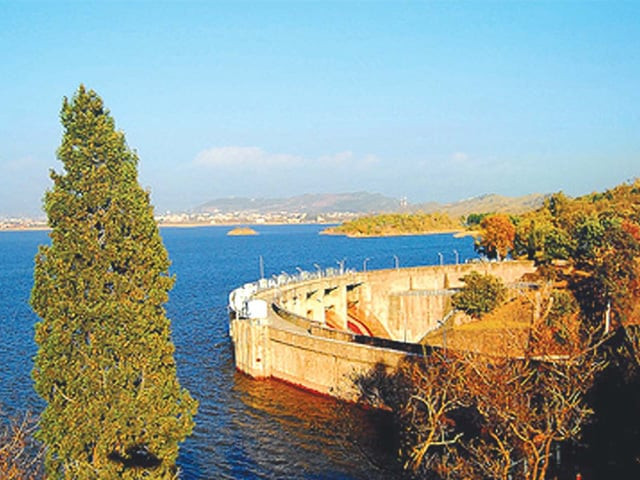Hepatitis outbreak: Senate body blames Rawal Lake pollution
Committee expresses frustration with failure of authorities to do anything about the hazard to public health.

The committee expressed its frustration with the failure of the authorities to do anything about the hazard to public health.
The committee met here with Senator Muhammad Hamayun Khan in the chair to discuss issues related to Rawal lake pollution.
An official of the lake management contradicted the impression that the reservoir was contaminated. Instead he laid the blame on poor sewerage and unhygienic water tanks in the houses for the health problems.
But this stand was not acceptable by the Minister for Environment Hameedullah Khan Afridi who insisted that the lake was still contaminated and no concrete step has been taken to improve the situation.
The issue has been controversial between the Capital Development Authority (CDA) and Rawalpindi administrations.
The CDA, which maintains that the source of pollution was the inflows from Rawalpindi and Murree, has asked the Punjab government to provide funds to cope with the situation. The CDA identifies the Korang Nullah as the main source of water contamination.
The Punjab Environmental Tribunal had also ordered closure of a poultry farm in Murree for polluting water streams flowing into lake. The tribunal had also issued arrest warrants for owners of two poultry farms and two homes for not appearing before it.
Built on Korang River in 1960, Rawal Dam is the main source of water for Rawalpindi city. With a catchment area of 275 square-km, it can store 84,000 acre feet of water during an average rainy year. Four major and 43 small streams also contribute to the reservoir.
In 1995, a task force for controlling pollution in the dam was set up. Later, a Rawal Lake Catchment Management Committee was set up to coordinate the workings of the various civic and environmental protection agencies. But despite apparent orders banning construction activities in the lake’s catchment areas upstream and prohibiting the operation of cattle sheds and poultry farms along stream banks, these activities have continued unabated, resulting in flow of five million gallons of untreated sewage and other dangerous effluents into the lake daily.
The SC had directed the cabinet division secretary to devise effective measures to ensure that “not a drop of filthy water” enters Rawal Dam.
Briefing the Senate committee on garbage issue, an official of the Cabinet Division said that around 6,000 tons of garbage is produced daily from Rawalpindi and there was no place for its disposal.
The committee was also informed that the government did not have Rs600 billion for treating 3,600 million gallons sewage all over the country.
Asif Shuja, Director General, Environment Protection Agency (EPA) informed the committee that environmental tribunals had been set up all over the country.
The EPA director-general said that anyone could go to tribunals, if EPA did not take action on the complaint of any person within 30 days. However, senators expressed their dissatisfaction over the performance of the tribunals.
The CDA officials told the committee that 411 sewerage points have been closed and 1,500 notices have been served on the violators. The members observed that the closing of the sewers are not a permanent solution to the problem and the authorities have to install plants to cope with the situation once for all.
Shuja said that installation of one plant costs Rs300 million to Rs400 million. He added that a firm has been tasked to prepare design for the plants and it is up to the CDA administration to execute the project. The members also expressed their reservation over the CDA performance as far as dumping of the waste are concerned and even people in the F sector drain the sewage into the nearby drains instead.
The environment committee also expressed displeasure over the decision of the parliament to devolve certain ministries to the provinces. “Provinces will not be able to ratify individually UN conventions and protocols related to environment and other issues having international implications,” Senator Raja Zafarul Haq.
Published in The Express Tribune, December 23rd, 2010.



















COMMENTS
Comments are moderated and generally will be posted if they are on-topic and not abusive.
For more information, please see our Comments FAQ